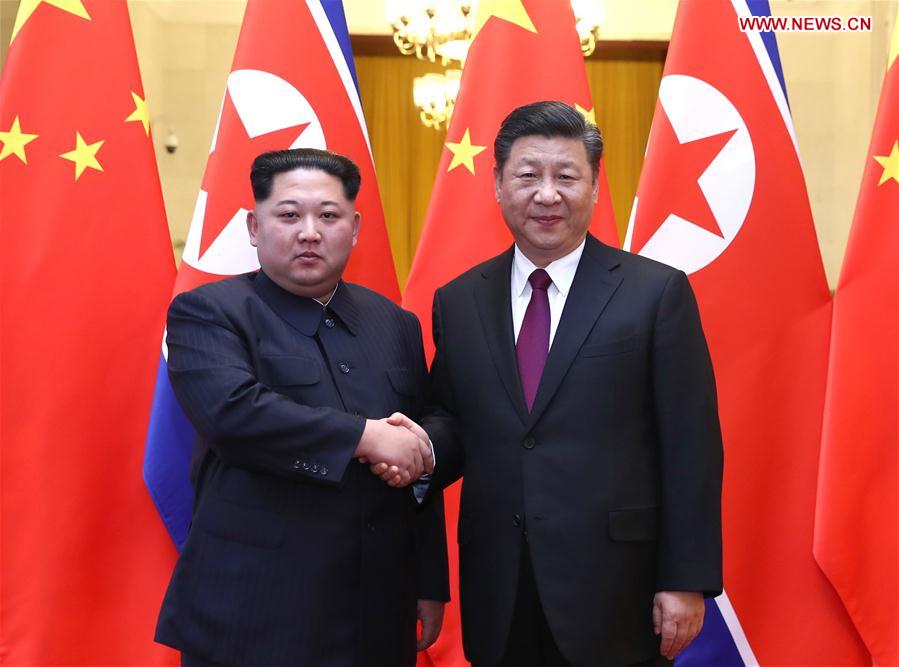Chinese Foreign Minister Wang Yi met North Korea's leader Kim Jong-un in Pyongyang on Thursday amid strengthening bilateral ties, and a Chinese expert said that bilateral ties are positive as North Korea will rely on China more than the US in its future foreign relations.

Photo: Xinhua
Conveying Chinese President Xi Jinping's cordial greetings to Kim, Wang said that the historic meeting between Xi and Kim during Kim's visit to China in late March has opened a new chapter for the two countries' relations, according to a foreign ministry release on Thursday.
Wang also noted that Kim's meeting with South Korean President Moon Jae-in brought a favorable opportunity for peaceful development on issues of the peninsula.
Wang's visit follows a landmark inter-Korean summit and precedes a meeting between the North's leader Kim and US President Donald Trump.
North Korea attaches great importance to bilateral ties between North Korea and China, which is a precious inheritance from the older generations of the two countries' leaders, Kim said during the meeting.
Wang's visit to North Korea and his meeting with Kim show the strength of two countries' high-level interactions and the renovation of bilateral ties, Cui Zhiying, director of the Korean Peninsula Research Center at Tongji University, told the Global Times on Thursday.
Cui said that the relationship between the two countries is positive and will not be influenced by the upcoming Kim-Trump meeting, because North Korea will rely on China more than on the US in its foreign relations.
North Korea needs advice from China about what to offer to Trump, while China needs to ensure its own interests aren't adversely affected by the meeting. China's role on the Korean Peninsula would never be marginalized, experts said.
Beijing will support North Korea in a cessation of hostilities on the peninsula, the country's strategic transition to economic development and its denuclearization, Wang said.


